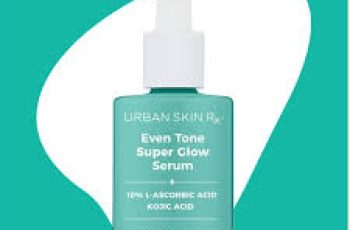
Glass Skin
You’ve no doubt heard of ‘glass skin’, a Korean beauty trend that aims to achieve smooth, flawless and radiant skin. It involves using a number of lightweight skincare products that infuse the skin with vitamins and minerals to achieve a glowing and youthful appearance.
There are a number of skincare products you can use as part of a glass skin routine at home, from cleansers and scrubs to glass skin serums and face packs for glowing skin. Here we provide you with everything you need for the glass skin trend.
How to Get Glass Skin At Home
To achieve the beautiful, radiant look of glass skin at home, it is essential to use skincare products that exfoliate the skin, such as hydroxy acids and scrubs, to remove dead skin cells from the skin’s surface.
Over time, the surface of the skin accumulates dead skin cells – this is completely normal and part of the process of the skin’s natural renewal process, which occurs around every 30 days.
However, allowing the dead skin cells to build up over time can leave your complexion looking dull and lackluster because dead skin cells don’t reflect the light. If the skin is dry and covered with dead skin cells then the light is scattered rather than reflected.
This build-up of dead skin cells is usually the result of a lack of exfoliation, but can also be caused by the aging process and is also common in dry skin types. Regular exfoliation helps the skin to stay healthy and improves its ability to reflect the light.
Rough skin
Smooth skin
The Best Cleansers for Glass Skin
To achieve glass skin at home, a renew cleanser will smooth the skin’s surface so that it effectively reflects the light and no longer has a dull appearance – just as the light glows on clear glass. Renew cleansers will contain hydroxy acids and will have a low pH, which releases attachments between the cells to lift dead skin cells away from the skin.
The best low pH cleanser for dry skin types is Essopi Glycolic 10% Moisturizing Cleanser, which is gentler than even the best scrubs. This renew cleanser contains 10% glycolic acid, an alpha-hydroxy acid that dissolves the dead skin cells, exfoliates, and allows new, more youthful-looking skin to breathe. It is also infused with the antioxidants vitamins A, C and E, CoEnzyme Q10, and green tea extract to support the production of collagen and fight skin aging, leaving a radiant and refreshed appearance.
Another of our favorite renew cleansers for dry skin is SkinCeuticals LHA Cleansing Gel, which is also perfect for skin types prone to acne, to give dull skin an instant glow. It combines salicylic acid (a beta hydroxy acid) with glycolic acid and glycerin to leave the skin smooth, blemish-free and hydrated.
For a gentle cleanser that is effective in sensitive skin types, we recommend PCA Skin Facial Wash, which contains lactic acid – an alpha hydroxy acid known for its gentle exfoliating and moisturizing properties. Allantoin and aloe vera soothe and soften the skin, leaving the skin hydrated and ready for the next step in your glass skin routine.
If you have combination skin, then the best renew cleanser is SkinMedica AHA/BHA Exfoliating Cleanser, which is best used under the care of a trained Skin Type Solutions medical provider. This resurfacing cleanser combines alpha hydroxy acids and beta hydroxy acids with jojoba to enhance the skin’s texture and remove dead skin cells. It is not suitable for sensitive skin types, and should always be used in conjunction with a daily SPF.
The Best Scrubs for Glass Skin
One of our absolute favorite skin scrubs is Pidanti Smoothing Polish Face and Body Scrub, which improves the appearance of skin texture and dull skin, leaving a smooth appearance. This plastic-free face scrub uses microcrystalline cellulose beads, glycolic acid and salicylic acid to exfoliate the skin and leave it smooth as silk. Arbutin and ascorbyl palmitate brighten the skin and even out skin tone for a radiant appearance.
If you have oily skin that is prone to acne, then Jan Marini Bioglycolic Resurfacing Scrub is recommended to achieve glass skin as its exfoliating granules combined with glycolic acid instantly smooth the skin. This acne scrub also contains soothing aloe and chamomile, which are natural antioxidants.
We also love ClarityRx Down + Dirty Detoxifying Charcoal MicroExfoliant, which is a natural face scrub that also doubles as a charcoal mask to smooth skin and removes dead skin cells. The activated charcoal helps to lift toxins and impurities from the surface of the skin, while natural mineral-rich seaweed protects and nourishes the skin to leave it looking youthful and radiant.
The Best Glass Skin Serum
Following your cleansing and exfoliating skincare products with a brightening serum is an essential step in achieving glass skin at home. Look for serums that contain hydroxy acids, such as glycolic acid, lactic acid or salicylic acid, which will deeply penetrate the skin to brighten, minimize discoloration and even increase blood flow to the skin for a healthy, youthful glow.
SkinCeuticals LHA Serum combines lipo-hydroxy acid (a derivative of salicylic acid) and glycolic acid to refine the surface of the skin and is quickly absorbed to smooth the skin’s surface, leaving a radiant appearance.
Alternatively, ClarityRx Brighten It serum contains 10% lactic acid (an alpha-hydroxy acid derived from milk) to gently exfoliate, and improve skin tone and texture. This glass skin refining serum is suitable for all skin types as lactic acid is a more gentle form of alpha hydroxy acid that has additional moisturizing and skin-nourishing benefits to leave skin looking and feeling flawless.
In Summary
Glass skin essentially means glowing skin, and in order to have glowing glass skin you need the surface of the skin to be smooth: the smoother the skin, is the more it will glow.
Using the right skincare for your skin type is the key to achieving glass skin at home. You can use some of the skincare products suggested in this article, combined with a face pack for glowing skin, though we recommend speaking to a dermatologist to find a personalized skincare routine for you.
Take the Skin Type Quiz and sign up for monthly face packs for glowing skin that contain all the skincare products you need for your skin type. Start by taking the Skin Type Quiz.


